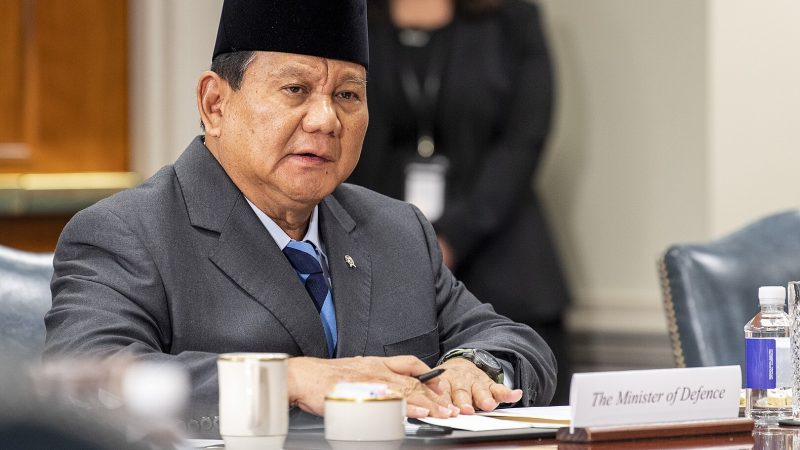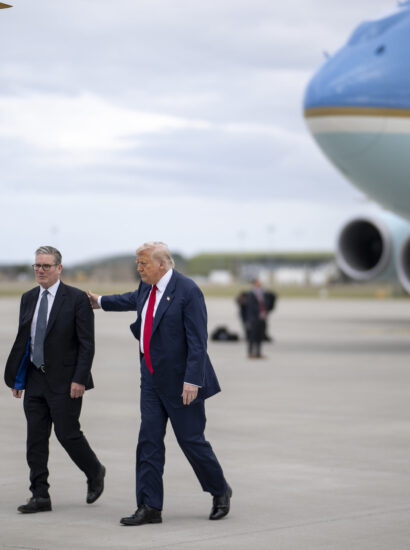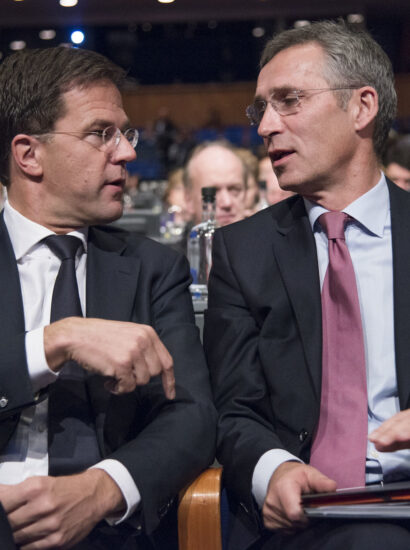Subianto Prabowo has won the Indonesian presidential elections, ensuring the continuity of strongman politics in the regional middle power. Although president Joko Widodo is stepping down from his position, Prabowo’s win maintains the core political directions. However, this will not be an easy task in the hotspot of the world.
Indonesia held its election on the 14th of February, but the official results were published only at the end of March. Collecting and counting 96 million ballots from over seventeen thousand islands (partly inhabited) was indeed a challenging task, not to mention the over 6 million Indonesians voting abroad. These figures highlight that Indonesia is not only the world’s third-largest democracy but also a truly unique one.
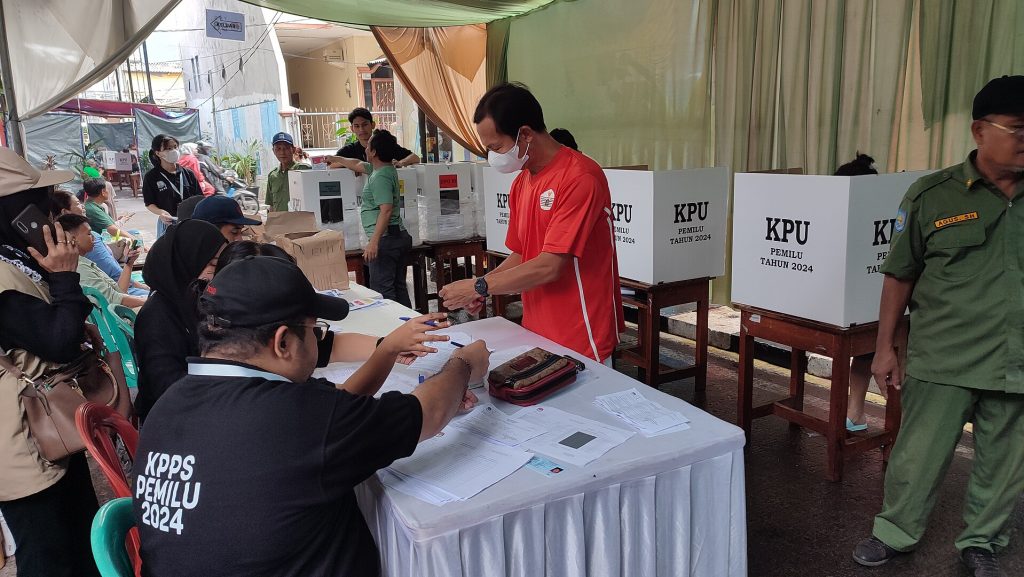
The election process in TPS 098 in North Jakarta at the 2024 Indonesian General Election (Photo: Jeromi Mikhael / Wikimedia Commons)
According to the official results, Subianto Prabowo, the outgoing government’s Defense Minister won the elections. The nationalist Prabowo’s vice-presidential candidate is Gibran Rakabuming, the eldest son of President Joko Widodo, who is forced to step down after his second presidential term The Prabowo-Gibran candidate pair received 59 percent of the votes. The opposition candidate, Anies Baswedan secured nearly 41 million votes, or 25 percent of the total count, while the third candidate, Ganjar Pranowo received 27 million votes, more than 16 percent.
From Military Strongman to Chubby Grandpa
“Who voted for Prabowo?” This was one of the main questions raised during a conference at the Taipei research institute, Academia Sinica. As a military officer, Prabowo was implicated in human rights violations under the Suharto regime. Additionally, he used to be the husband of the daughter of Indonesia’s former authoritarian leader and is traditionally seen as a remnant of the Suharto era by the public.
But as the Indonesian researchers emphasized in Taipei, Prabowo was successfully portrayed during the campaign as a so-called ‘gemoy,’ a term in Indonesian referring to a chubby, cute grandpa with a passion for cats.
According to recent election data, Prabowo was embraced by several different groups within the extremely complex Indonesian society. The country is divided by religious, ethnic, geographic, income, and most recently, generational gaps. As Dr. Yufita Ng, a researcher at the Center for Asian-Pacific Area Studies, demonstrated, Prabowo even managed to secure votes from younger generations of the ethnic Chinese minority—a significant achievement, considering he is accused of involvement in the crackdown on minority riots in 1998.
Jokowi Forever
The voters’ decision can also be seen as feedback on the policies of outgoing President Joko Widodo, or Jokowi. The newly elected Prabowo-Gibran pair represents continuity with the Jokowi era, and their victory reflects the popularity of the outgoing president.
Although the West has accused Jokowi several times of endangering Indonesia’s democratization process, his bold policies have opened a new era in Indonesia’s history.
The opposition is also aware of the outgoing president’s popularity, so the stakes of the elections were less about the main direction and more about the fate of individual policy projects. Foremost among these is the issue of relocating the capital, which was also the most divisive topic of the election.
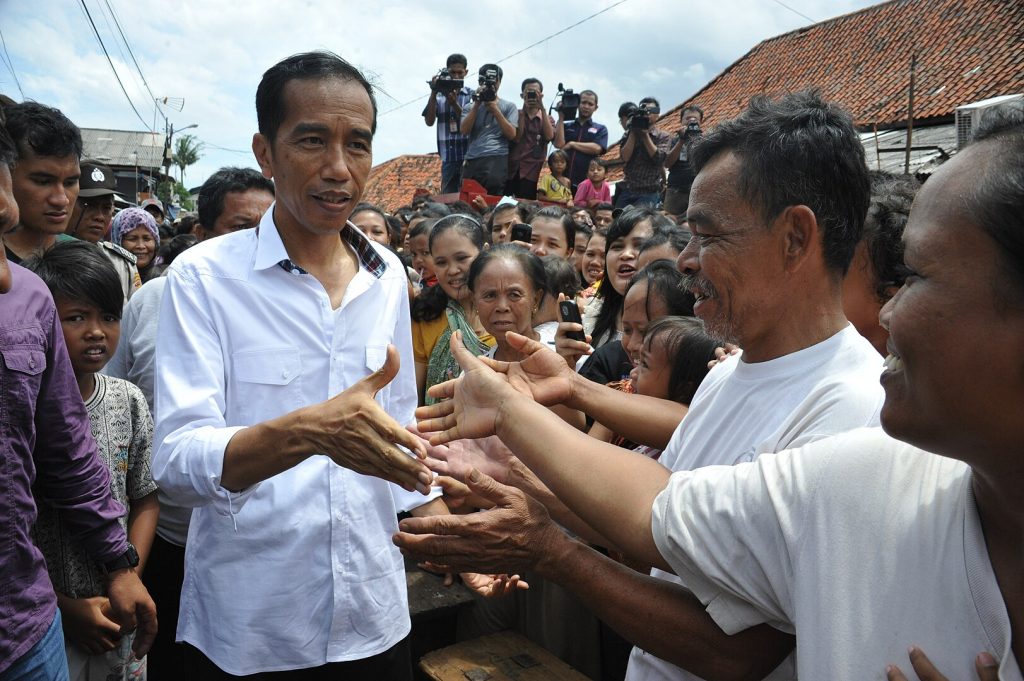
Jokowi on a blusukan neighborhood visit in Jakarta (Photo: Provincial Government of Jakarta)
At the beginning of his second presidential term in 2019, Jokowi announced a program intended as his main legacy, under which a new capital, Nusantra, would replace Jakarta by 2045. The project is literally a greenfield investment: construction began in the virtually untouched eucalyptus forest on the eastern shores of the central island, Borneo. The initial budget for the $29 billion project would be covered 20 percent by the government, with the remaining 80 percent planned to be financed by private capital. However, the attraction of the latter has been slow due to increased costs and political uncertainty surrounding the elections.
If Beijing Calls…
The victory of the Prabowo-Gibran pair is likely to reassure private capital players, just as continuity is assured in foreign policy. The Jokowi era began with the declaration of Indonesia’s middle power ambitions. Shortly after his election, the Indonesian leader announced the Global Maritime Axis strategy, which became known as the Jokowi Doctrine.
Its essence aimed at creating Indonesia as a maritime power by developing the navy and enhancing commercial connectivity.
It’s noteworthy that shortly after the strategy was announced, Chinese President Xi Jinping unveiled the Maritime Silk Road plan in Jakarta, later continuing as the Belt and Road Initiative (BRI). This not-so-coincidental convergence shows how the fates of the two Asian countries are closely intertwined today. China is the largest market for Indonesian products (reaching $6.67 billion in 2023), and most investments come from there, after Singapore and Japan. Mention should be made of the Jakarta-Bandung high-speed railway, which was put into operation last October, with a budget of $7.3 billion and built with Chinese technology.
The importance of the Chinese relation for Jakarta is shown, that Prabowo, who takes office later this year, visit Beijing in April, only 2 weeks after the official results were released. On the invitation of President Xi Jinping, Prabowo will spend 3 days in the Chinese capital.
Despite close cooperation, Indonesia cannot be considered an ally of Beijing.
Like other states in Southeast Asia, Jakarta adeptly follows a hedging strategy towards competing superpowers. An example of this is when Jokowi met with Xi Jinping in Beijing last October and then welcomed him to Washington in November, to meet with U.S. President Joe Biden. Although there is currently no bilateral security agreement between Indonesia and the United States, Jakarta actively participates in Western cooperation mechanisms aimed at containing China regionally. Exploiting its stable geopolitical position, Indonesia pursues an active foreign policy, hosting the G20 summit in 2022 and chairing the Association of Southeast Asian Nations (ASEAN) last year.
Costly Ambitions
However, it is questionable whether the new leadership possesses the negotiation skills and charisma necessary to maintain this. Jokowi faced serious pressure, for example, due to the war in Ukraine, as Indonesia was unwilling to condemn Russia and continued to supply weapons to the Kiev government. Indonesia’s main security issue is the South China Sea disputes, in which Jakarta is not a claimant.
While Indonesia could position as an honest broker, neither Jokowi, nor Prabowo has such ambitions.
According to the analysis published on the East Asia Forum, Prabowo did not mention the importance of peace and security in the disputed area during the campaign. Instead, he emphasized the importance of Indonesia developing a robust maritime defense capability to safeguard its interests in the North NatunaSea. The maritime defense and capabilities of the Indonesian Navy and Coast Guard are of great importance. With this approach, Prabowo emerges as the candidate likely to pursue a more proactive policy in the North Natuna Sea compared to other contenders.
The future of such ambitions, and the Prabowo-era in general largely depends on how strong an economic backing the country provides for its foreign policy goals.
Indonesia’s most important asset for battery manufacturing is nickel, of which Indonesia has the largest reserves in the world. Its exports increased from $83 million to $5.8 billion over the past decade, while most raw material exports have been banned. This forced significant industrial investments from Chinese (BYD), American (Ford), and Japanese (Hyundai) manufacturers. The economy policy, known as “Jokonomics,” announced in 2014, has been criticized from the beginning for its protectionist nature and strict market regulations. Despite results such as boosting machinery manufacturing and reducing import dependence, Indonesia faces the trap of medium growth.
Under the government of Prabowo, control over the markets is expected to strengthen further. Their goal is economic growth between 6-7 percent, surpassing the 5 percent growth of recent years. Given that the protectionist economic policy pursued since 2014 has reached a state of exhaustion based on GDP growth, the commitment seems exaggerated. The big question for the future is whether the Indonesian success story can continue without reforms and what consequences a slowdown in the economy may bring.

